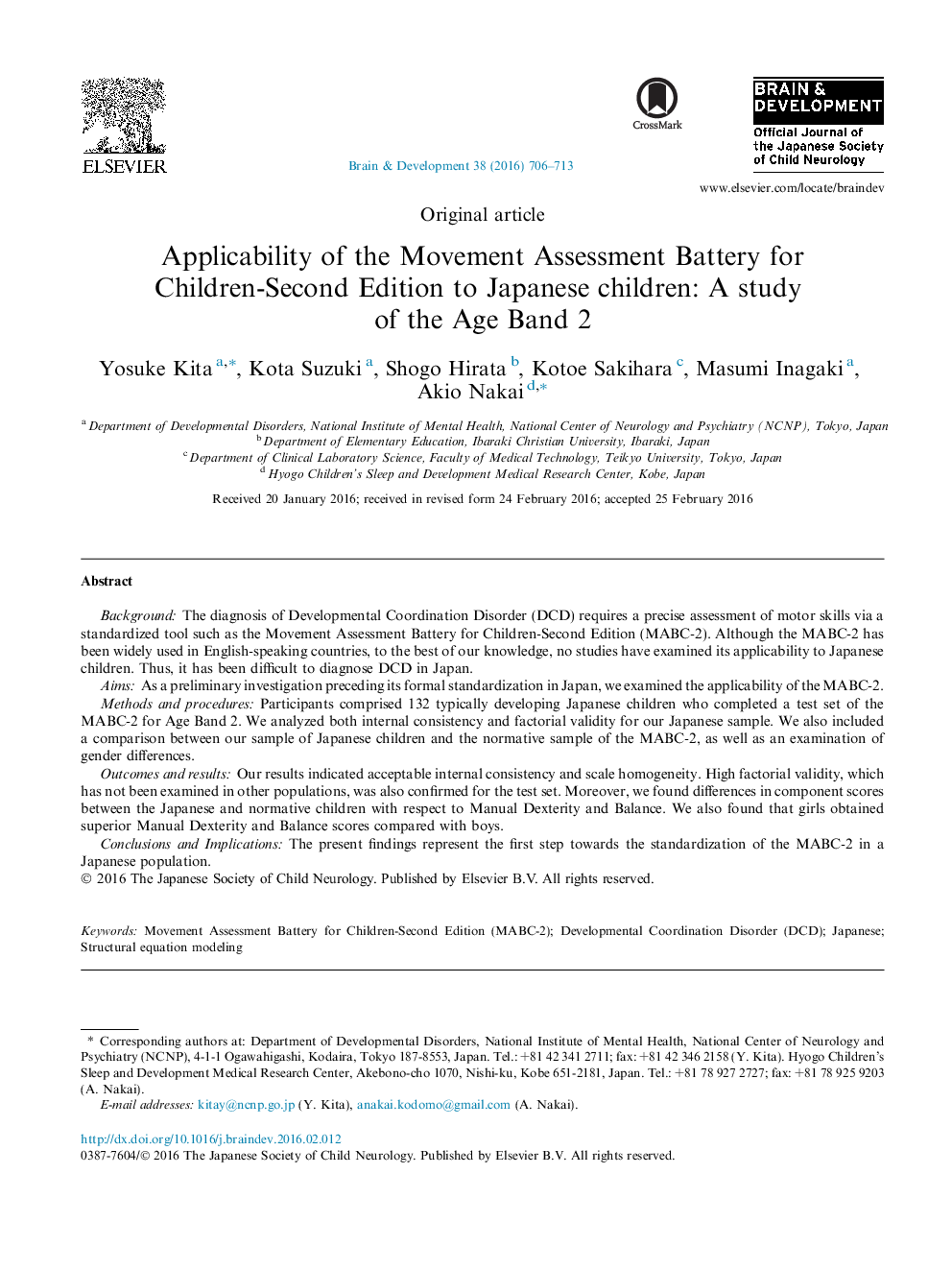| Article ID | Journal | Published Year | Pages | File Type |
|---|---|---|---|---|
| 3036445 | Brain and Development | 2016 | 8 Pages |
BackgroundThe diagnosis of Developmental Coordination Disorder (DCD) requires a precise assessment of motor skills via a standardized tool such as the Movement Assessment Battery for Children-Second Edition (MABC-2). Although the MABC-2 has been widely used in English-speaking countries, to the best of our knowledge, no studies have examined its applicability to Japanese children. Thus, it has been difficult to diagnose DCD in Japan.AimsAs a preliminary investigation preceding its formal standardization in Japan, we examined the applicability of the MABC-2.Methods and proceduresParticipants comprised 132 typically developing Japanese children who completed a test set of the MABC-2 for Age Band 2. We analyzed both internal consistency and factorial validity for our Japanese sample. We also included a comparison between our sample of Japanese children and the normative sample of the MABC-2, as well as an examination of gender differences.Outcomes and resultsOur results indicated acceptable internal consistency and scale homogeneity. High factorial validity, which has not been examined in other populations, was also confirmed for the test set. Moreover, we found differences in component scores between the Japanese and normative children with respect to Manual Dexterity and Balance. We also found that girls obtained superior Manual Dexterity and Balance scores compared with boys.Conclusions and ImplicationsThe present findings represent the first step towards the standardization of the MABC-2 in a Japanese population.
